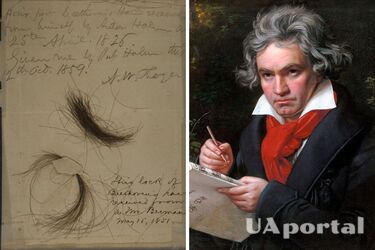Hair clue: scientists find out what caused Beethoven's deafness

Scientists have put forward a hypothesis about the cause of Beethoven's deafness: lead poisoning. American researchers found high levels of heavy metals in the composer's hair.
Ludwig van Beethoven, one of the most famous composers in history, suffered from deafness for most of his life. The cause of his deafness has remained a mystery for many years, but a new study offers a fascinating explanation, Live Science writes.
American scientists analyzed DNA from two strands of Beethoven's hair and found that one of them contained 380 micrograms of lead per 1 g of hair, and the other contained 258 micrograms per 1 g of hair. This is significantly higher than the current standards, which do not exceed 4 micrograms.
In addition, Beethoven's hair contained 13 times more arsenic and four times more mercury than the normative values.
Scientists suggest that the high level of lead in Beethoven's hair could have been the cause of his deafness, as well as the gastrointestinal problems he also suffered from.
The study confirms other theories about Beethoven's health. Earlier, an international team of scientists, having examined the composer's DNA, also found signs of lead poisoning and infection with the hepatitis B virus.
How could lead poisoning have affected Beethoven's hearing?
Lead is a toxic metal that can damage the nervous system, including the brain and nerves responsible for hearing.
The effects of lead on hearing can take many forms, including:
- Temporary or permanent hearing loss
- Ringing in the ears (tinnitus)
- Dizziness
- Problems with balance
Scientists believe that lead poisoning was probably not the only cause of Beethoven's deafness.
If you want to get the latest news about the war and events in Ukraine, subscribe to our Telegram channel!
